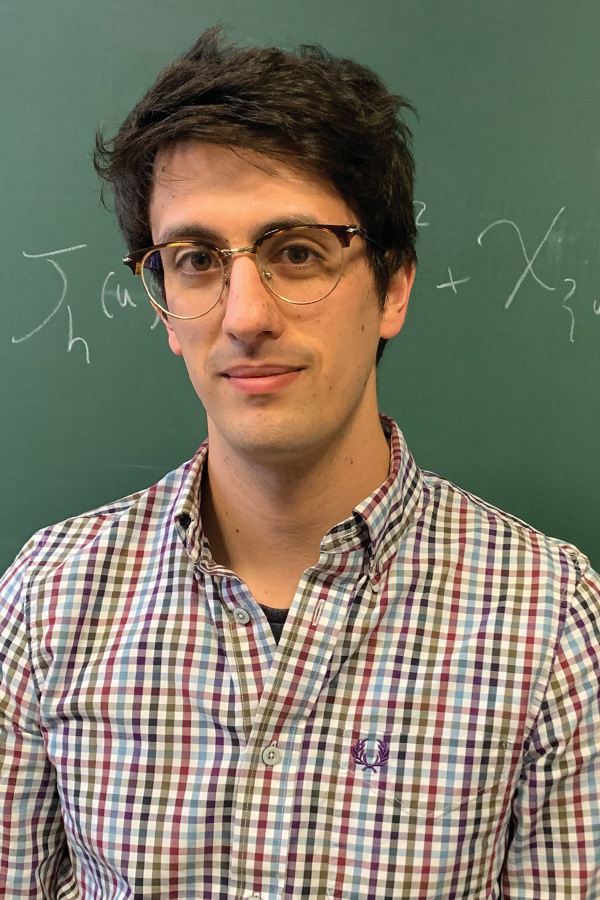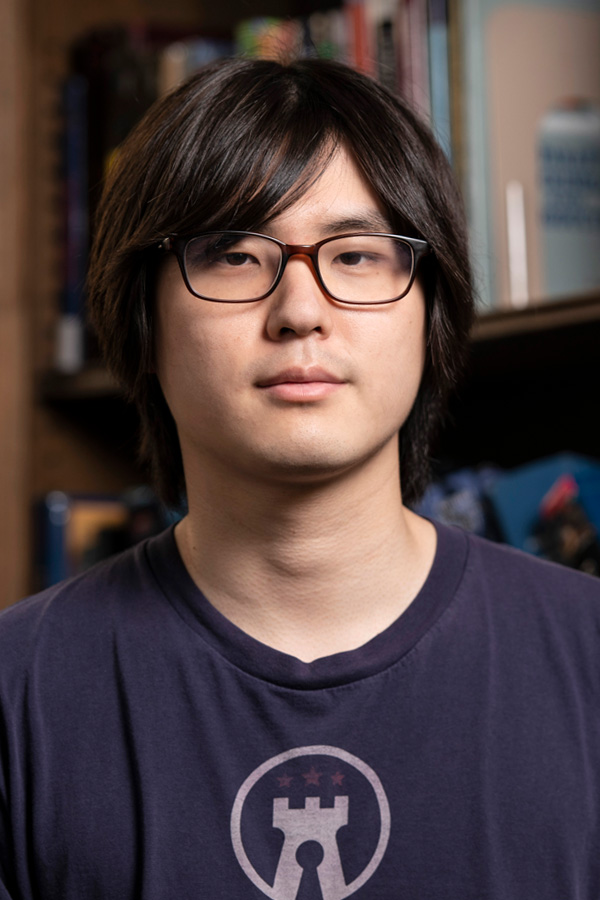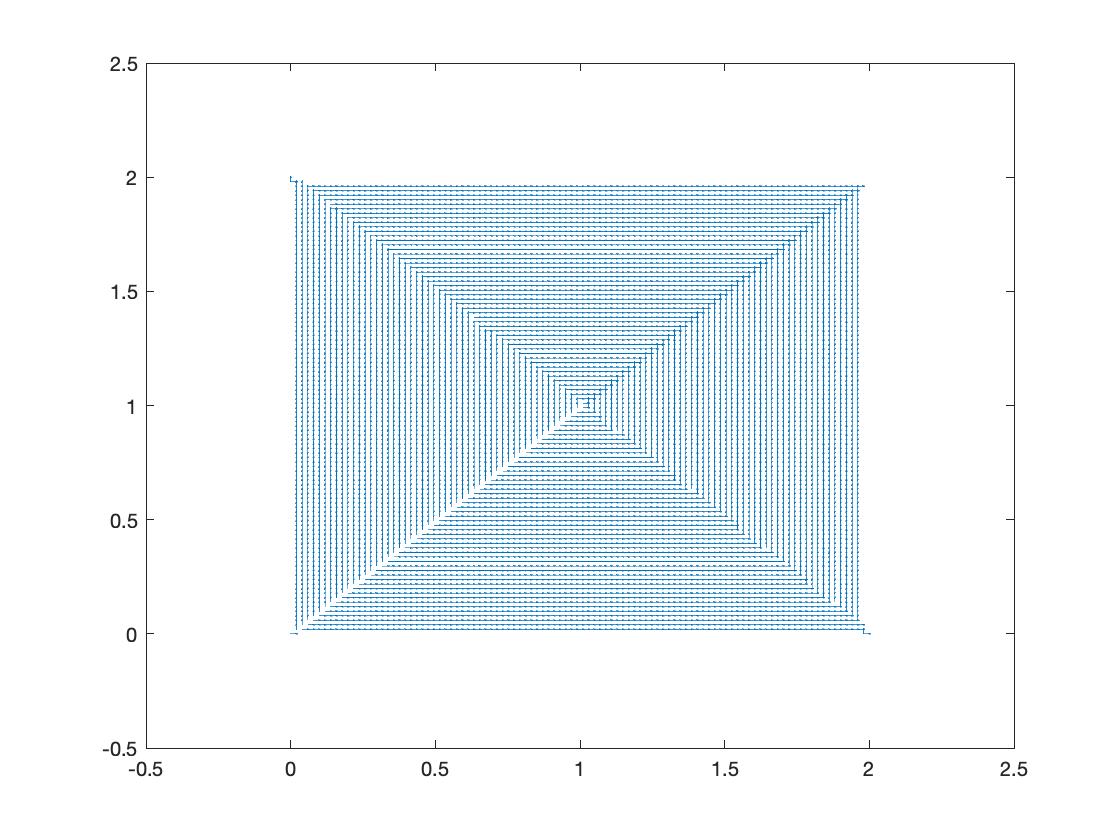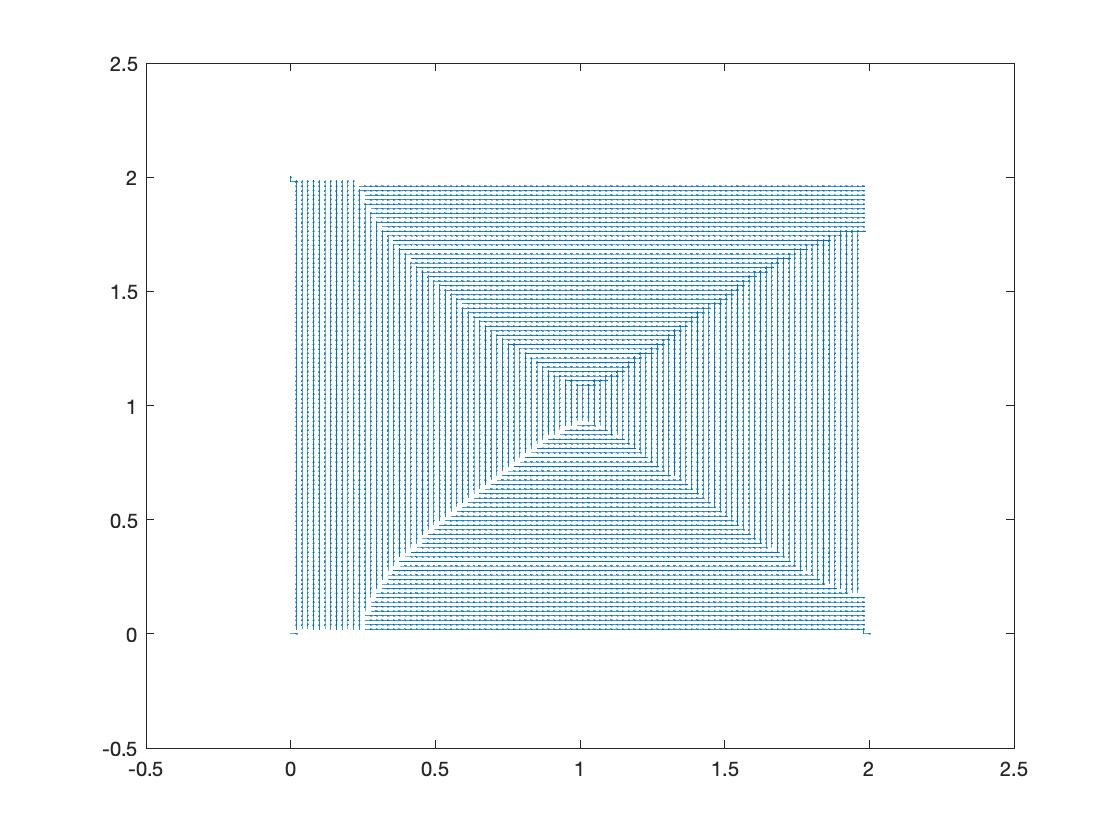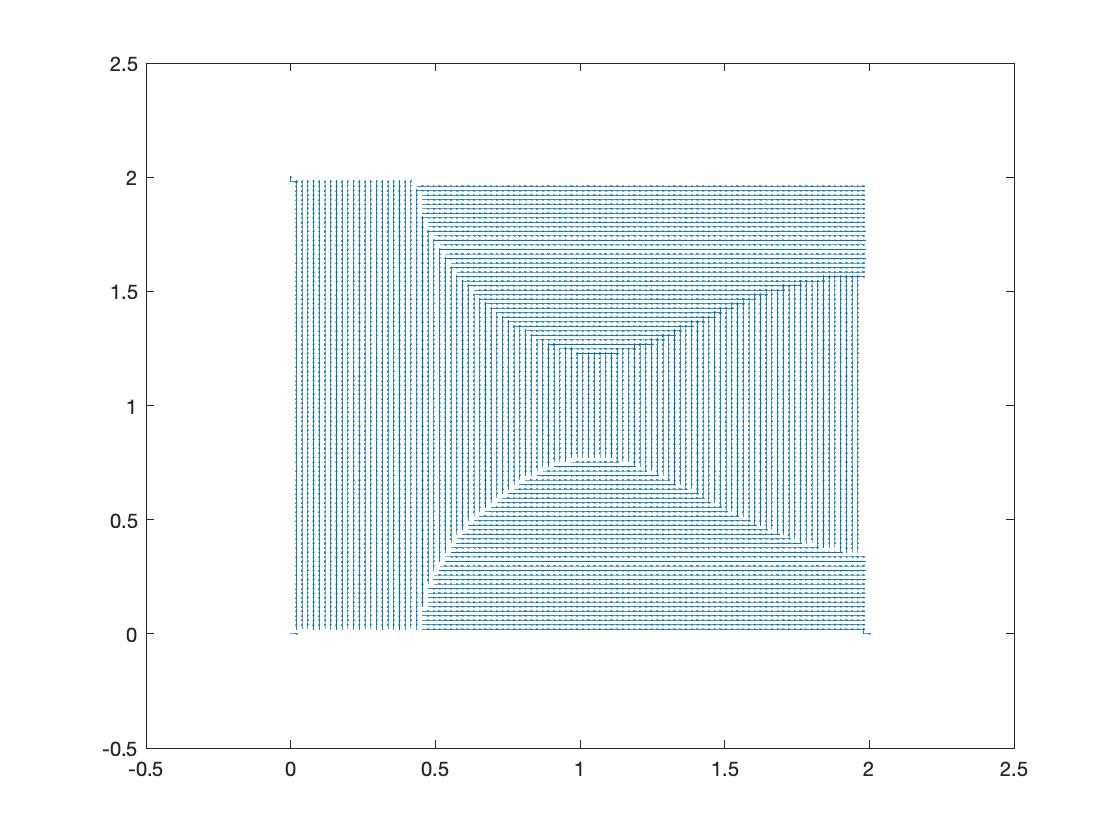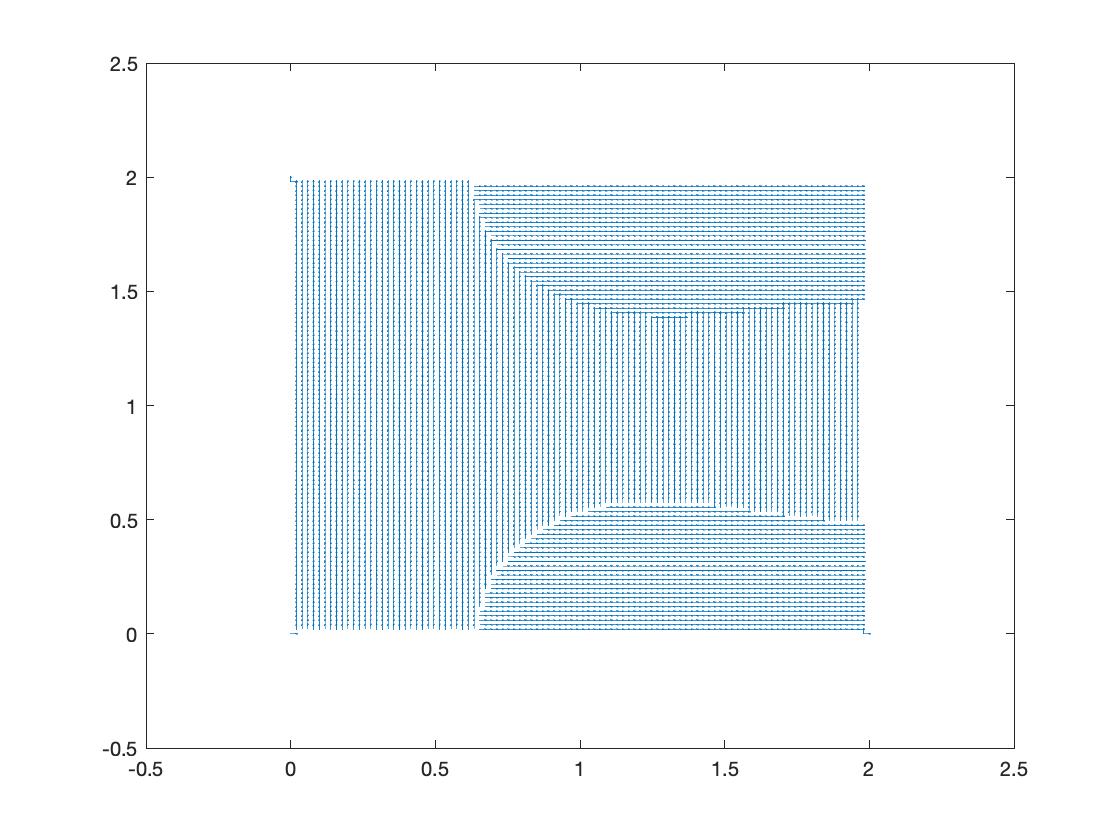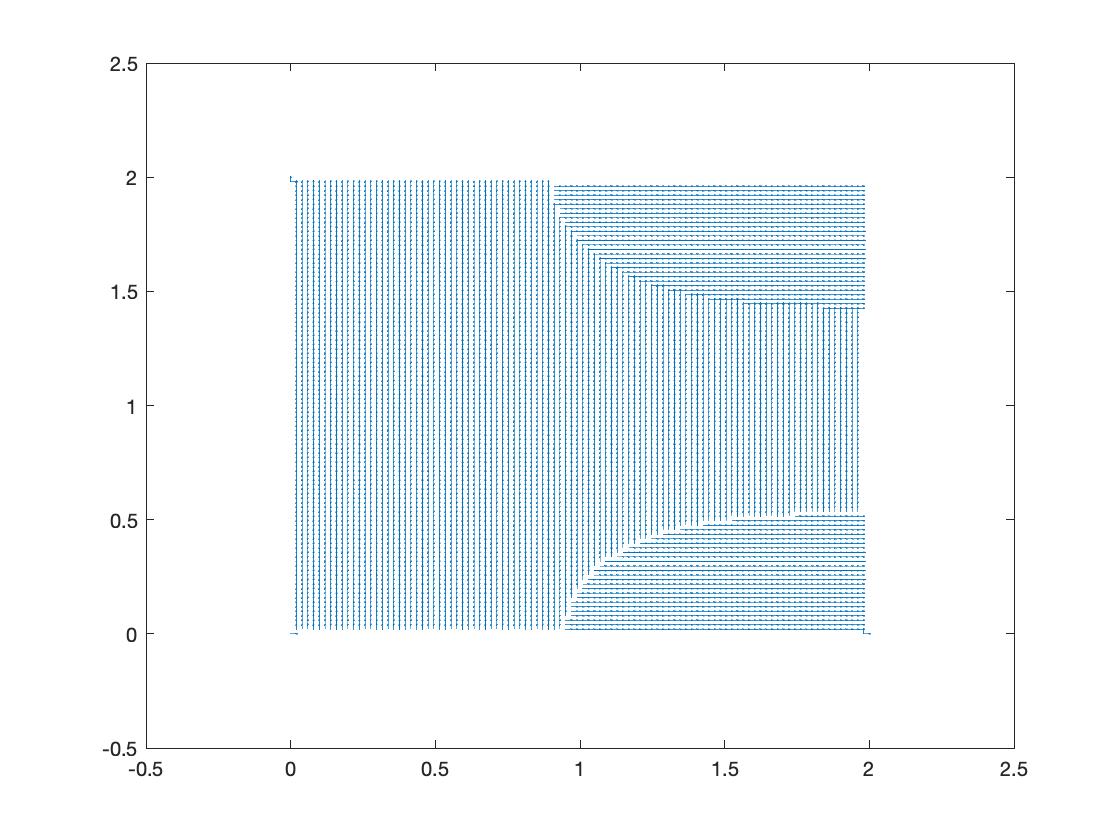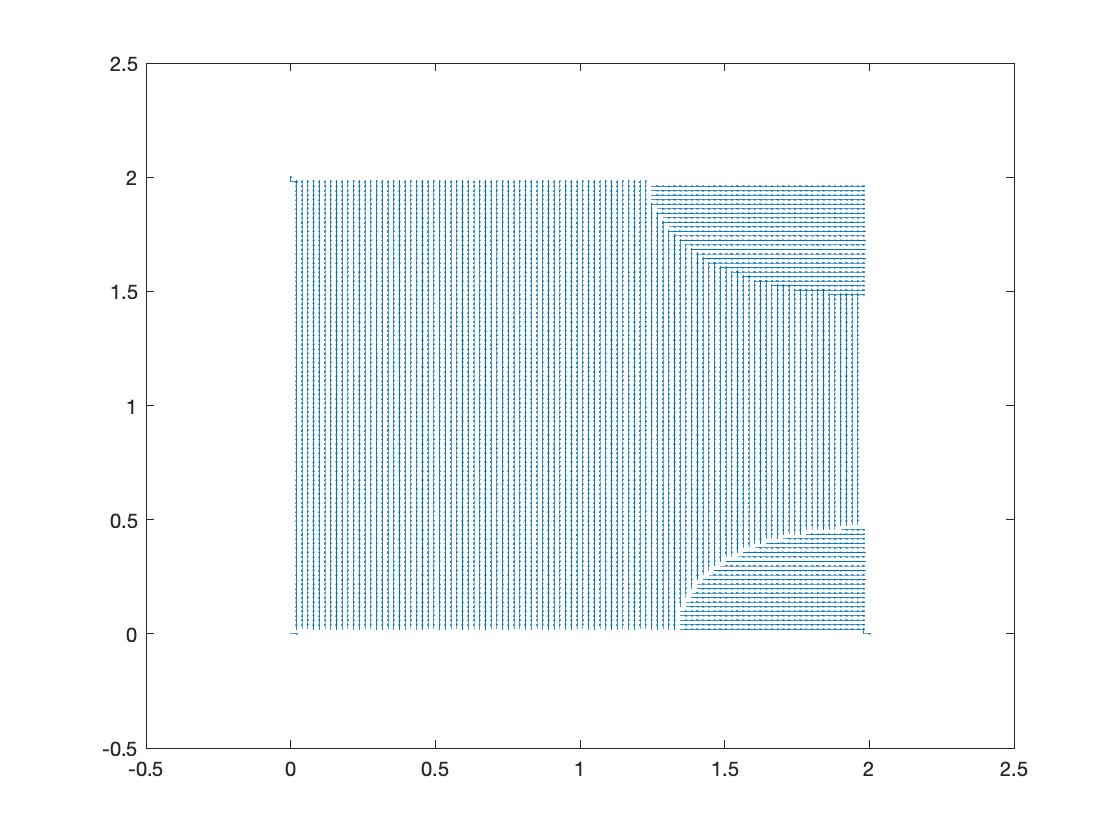
Giovanni Gravina Receives Graduate Student Teaching Award
Giovanni Gravina was honored with the Mellon College of Science’s 2019 Hugh Young Graduate Student Teaching Award.
“I was very grateful for the recognition that I have received for my work and I was reminded of the enthusiasm needed to grow as a teacher,” Gravina said of the honor.
“Giovanni takes his teaching extremely seriously and our students really appreciate him,” wrote Professor William Hrusa in nominating Gravina. “He has been an outstanding citizen around the department.”
Hrusa noted that Gravina substituted or assisted with a wide variety of undergraduate courses in his time at Carnegie Mellon, and earned the respect of the department’s faculty. In 2016, for example, the department entrusted Gravina with assisting a professor having serious health issues because “we had complete faith in him to handle the class on his own if necessary.”
“His office hours were always well attended, and our students often mentioned his name with a tone of camaraderie, as if Giovanni was someone they felt very comfortable with,” Associate Teaching Professor Dana Mihai wrote about her experience teaching with Gravina in 2015. “Throughout the class, I came to rely on Giovanni with confidence that everything will be done well.”
Several of Gravina’s former students also wrote letters attesting to Gravina’s teaching prowess. “His thoughtfulness, respect for students and genuine interest in helping us learn still stand out to me,” wrote Meredith Wong about Gravina’s teaching of her 2017 Differential Equations course. “I felt like he genuinely cared about my and other students’ learning because he was so expressive in his teaching and was always willing to put in the extra time to make sure we understood things.”
“He was always exceptionally prepared, well-spoken and attentive to the needs of the class,” Newton Xie wrote about Gravina. “His instruction set a high bar for excellence and helped ease my transition academically during my first semester at the university.”
Jung Joo Suh Recognized as Goldwater Scholar
Undergraduate student Jung Joo Suh was named a 2019 Goldwater Scholar by the Barry Goldwater Scholarship and Excellence in Education Foundation. Suh, a native of South Korea who came to Carnegie Mellon from New Jersey, plans to enter a Ph.D. program in mathematics after graduation, with a focus on research in descriptive set theory and analysis.
“I’ve been interested in math for a long time,” Suh noted, especially set theory, which studies well-behaved subsets of certain topological spaces. “These topological spaces can sometimes be visualized as a certain graph, and with the graph theoretic interpretation a lot of interesting questions can be asked.”
Under Associate Professor Clinton Conley, Suh has been focusing especially on clopen sets — a set that is both open and closed in a specific topological space.
Suh said he enjoys doing research, and that its challenges make discovering new ideas rewarding. “When you’re stuck on a problem, you can’t ask for help,” Suh noted.
“Jung Joo is a wonderful representative of Carnegie Mellon’s robust undergraduate mathematics program, where he has built deep foundations in several subfields and taken on ambitious research under the mentorship of Professor Clinton Conley,” said Richelle Bernazzoli, assistant director of the Undergraduate Research Office. “This is the sort of intellectual boldness that the Goldwater Scholarship seeks out and nurtures. We are delighted to see Jung Joo’s work recognized with this prestigious national award and we look forward to following his career as a mathematician.”
Besides research, Suh has also spent time working as a peer tutor, grader and teaching assistant. He’s excited about his Goldwater Scholarship, and he said applying for it has helped him organize his research into a coherent narrative. Overall, Suh believes being recognized as a Goldwater scholar will aid his goal of attending graduate school. “It shows that you’re ready to be a researcher,” Suh said.
He is one of 496 recipients of the scholarship, which recognizes second- and third-year college students intending to pursue research careers in mathematics, engineering and the natural sciences. A total of 1,223 students were nominated by 443 academic institutions for the award, which provides up to $7,500 per undergraduate year for tuition, mandatory fees, books, room and board.
SURF SPOTLIGHT
Numerical Analysis of Liquid Crystals
Liquid crystals occur naturally in cell membranes and are perhaps most famous for their application in liquid crystal displays. Liquid crystals are an intermediate state between a liquid and a crystal. In a liquid, all the particles are randomly oriented while in a crystal, all the particles are completely aligned. In liquid crystals, particles are thought of as being “vaguely oriented” in that the particles in a small section of the liquid crystal will usually be pointing in the same direction. Physicists have produced a system of partial differential equations (PDEs) that models a system of liquid crystals and predicts their alignment in space and time. These equations are very nonlinear, which makes finding exact solutions nearly impossible.
In his SURF project Varun Gudibanda, now a senior, worked with Assistant Professor Franziska Weber on a numerical scheme that computes an approximation to the solution of these PDEs. The sequence of images shows the evolution of this numerical approximation. The small lines represent the orientation of the liquid crystal molecules. The orientations evolve according to a gradient flow with respect to a certain energy potential towards equilibrium. The energy potential is composed of an elastic part and a bulk part (thermotrophic). The simulation was done with a finite difference scheme that represents a discrete version of the continuous gradient flow and preserves the structure of the energy and its decay over time, roughly speaking.
Gudibanda is currently working on extending the scheme to more complicated energy potentials and adding additional physics, including fluid flow and external forces. He is also working on rigorously proving convergence of the numerical method.
“Numerical Analysis of Liquid Crystals“
by Varun Gudibanda
Summer 2019 Math
SURF Research Projects
Max Aires
Edge Density of Maximally
Linkless Graphs
Advisor: Florian Frick
Zhijie Chen
Finite Difference Scheme for Solving the Allen-Cahn Equation Coupled with an Elliptic Equation
Advisor: Franziska Weber
Varun Gudibanda
Numerical Analysis of Liquid Crystals
Advisor: Franziska Weber
Scott Harvey-Arnold
1D Free Boundary Problems
Advisor: Giovanni Leoni
Zhiyang He
New Upper Bound on Extremal Number for Even Cycles
Advisor: Boris Bukh
Philip Lamkin
Log-convexity of Moments of Averages
Advisor: Tomasz Tkocz
Yile Liu
Multilevel Monte Carlo
Advisor: Yu Gu
Learning Transport Velocity Fields from Data
Advisor: Hayden Schaeffer
Fei Peng
What Can You Draw?
Advisor: Florian Frick
Matthew Shi
Inequalities in Convex Geometry
Advisor: Raghavendra Venkatraman
Xiang Si
Minimizing Curve and Distribution of Average Network CommuteTime Problem
Advisor: Dejan Slepčev
Noah Stevenson
Steady-State Stability Analysis of Periodic Micropolar Fluids
Advisor: Ian Tice
Jianming Wang
Horizontal-Vertical Geometry for Signal Comparison
Advisor: Dejan Slepčev
Yuepeng Yang
An Estimator of Point/Manifold-Manifold Distance Based on Local PCA
Advisor: Dejan Slepčev
Meeting of the Minds Poster Competition
David Simmons Prize for Undergraduate Research in Mathematics
Emily Zhu
Multicolor Ramsey Numbers for Small Hypergraphs
Honorable Mention
Alp Müyesser
Unavoidable Colorful Patterns in Graphs
Xinyu Wu
A Log-Sobolev Inequality for the Multislice, with Applications
Annie Xu
Traces for Homogeneous Sobolev Spaces in Infinite Cylindrical Domains
Young Research Award
Laura Li & Lily Qiao
Portfolio Optimization with Order Size Impact

